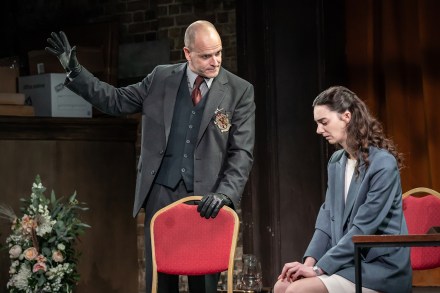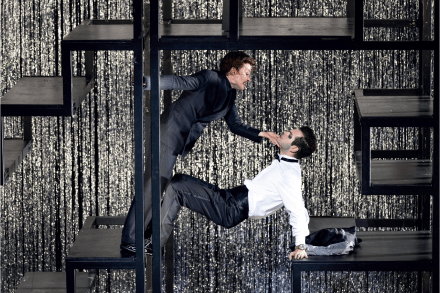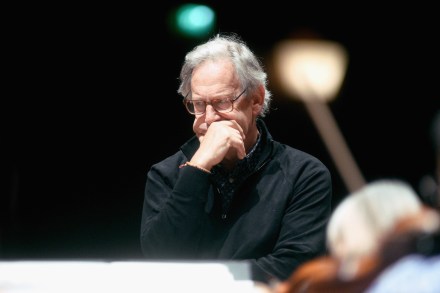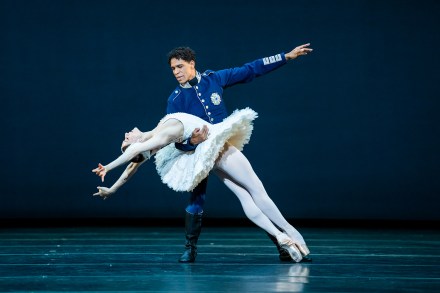Cheesy skit: A Mirror, at the Almeida Theatre, reviewed
The playwright Sam Holcroft likes to toy with dramatic conventions and to tease her audiences by withholding key information about the characters. This tinkering seems to scare the critics into praising her scripts even though they feel like clumsily written thrillers or botched sci-fi yarns where the rules keep changing. Her technique appeals to high-minded theatres such as the Almeida because it enables A-level drama students to fill their notebooks with impenetrable guff about ‘metatextuality’ and ‘poly-ironic approaches to narrative’. It could be Noises Off by an author who wants to be Brecht or Pirandello Holcroft’s new satire, A Mirror, opens with a bogus wedding that gets disrupted when a





















